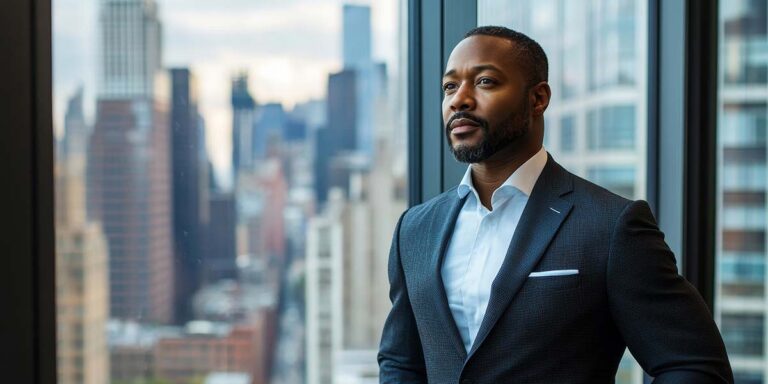By Nathan Loyd Ndungu
The Real Education Begins After a Fall
I’ve been in business for over 30 years. That means I’ve had more than my fair share of wins—and a long list of failures. But if you asked me where I learned the most, I wouldn’t tell you about my biggest contracts or most successful ventures. I’d tell you about the moments that brought me to my knees.
Failure has taught me more than any business course, book, or conference ever could. It’s uncomfortable, humbling, and often painful. But it’s also where character is built, resilience is tested, and growth becomes possible. Success feels good, but failure teaches you how to succeed again and again.
Failing in Real Estate: A Turning Point
In the late 1990s, I was deep in real estate development. I founded DN International in Rwanda, and for a while, things were going very well. We had high-profile clients like Coca-Cola and UNICEF. We were growing fast, building infrastructure, housing, and a solid reputation.
But growth can be deceptive. If the foundation isn’t stable, everything you build is at risk. Economic challenges and regulatory changes hit us hard. Cash flow dried up. Projects stalled. I was faced with a tough reality: what I had worked so hard to build was slipping away.
At the time, it felt like failure. And it was. But that experience taught me lessons no classroom ever could. I learned the importance of flexibility, of always having a contingency plan, and of never relying too heavily on a single revenue stream. More importantly, I learned how to pivot. That failure pushed me into international trade and agribusiness—industries where I would later thrive.
Failure Strips Away Ego
One thing failure does better than anything else is remove your ego. When you’re winning, it’s easy to believe you have all the answers. You start to feel untouchable. But failure will show you, very quickly, where your weaknesses are.
It humbles you. It reminds you that you’re not in control of everything. That no matter how smart, prepared, or hardworking you are, things can fall apart. And that’s okay.
In fact, I believe it’s necessary. Because only when you let go of the ego can you begin to see clearly. You become more open to feedback. You ask better questions. You become a better listener. And ultimately, you become a better leader.
Failing Fast, Failing Forward
In business, they often say, “fail fast.” But I’d add, “fail fast—and fail forward.” Don’t just move on from failure. Learn from it. Write it down. Ask yourself what went wrong and why. Look at what you missed. Identify the blind spots.
Every time I failed, I made it a point to debrief myself. What did I ignore? Where did I get too comfortable? What signs did I overlook? This process turned every mistake into a lesson—and those lessons became the foundation of my next move.
Over time, I’ve become better at recognizing warning signs. I’ve learned how to spot a bad deal early, how to hire more wisely, and how to protect my companies during market downturns. These skills didn’t come from success. They came from surviving failure.
Failure Builds Resilience
Resilience isn’t something you’re born with. It’s something you build—through pain, pressure, and persistence. Failure is the gym where resilience gets trained.
I remember when we launched Avoveg Health Kenya Ltd. Entering the international agriculture market was no small feat. There were logistical issues, quality control problems, and stiff competition. Early on, we missed deadlines and lost shipments. I thought about walking away more than once.
But instead of quitting, we made adjustments. We improved our systems, hired new talent, and strengthened farmer relationships. We learned. And today, Avoveg is one of Kenya’s top avocado exporters to Europe and the Middle East.
The only reason we made it through those early struggles was because of the resilience I’d built during my past failures. I knew setbacks were part of the journey—and I had the patience to endure them.
Redefining Success
Failure also forces you to redefine what success actually means. When I was younger, success meant making money, gaining recognition, and building big companies. But after going through failure, I began to value different things.
Now, success to me means building something that lasts. It means treating people with fairness. It means creating opportunities for others. And it means having peace in how I run my business—knowing that my decisions align with my values.
Success without purpose is empty. And sometimes, it takes failure to see that clearly.
Sharing the Lessons
My book, My Successful Failures, was written for this very reason. I wanted to share the lessons I learned—not just the victories, but the scars too. Too often, we celebrate success and hide failure. But the truth is, failure is where the gold is buried.
I share my story so others don’t feel alone when they fall. So they know that even the most seasoned entrepreneurs stumble. And so they understand that failure isn’t the end of the road—it’s a necessary step on the path to something greater.
Final Thoughts
I wouldn’t be who I am today without the failures I’ve experienced. They shaped my mindset, deepened my faith, and sharpened my skills. They taught me how to endure, how to adapt, and how to grow.
To anyone out there facing a tough season, I want to say this: don’t fear failure. Embrace it. Learn from it. Let it teach you. Because failure, when handled with humility and reflection, is the greatest teacher you’ll ever have.
And if you’re willing to keep going, you’ll find that on the other side of failure is not just success—but wisdom, strength, and purpose.


